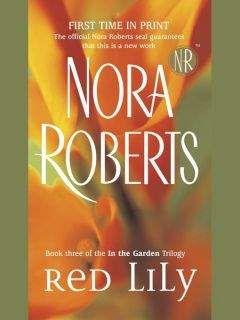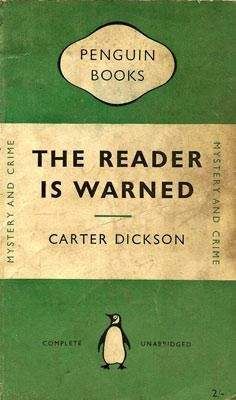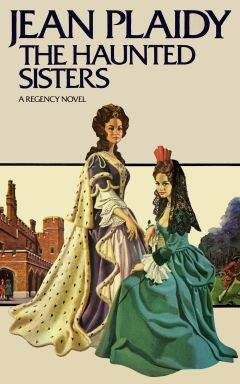John Carr - The Plague Court Murders
"Well, sir, then here's what happened after Bert and I left you.... I'd better get it down on paper. They'll be asking . . . and I shall catch hell for all this. Down on paper.... Do you know what that crowd was doing, what they've been doing for the last half-hour?" Masters demanded bitterly. "Yes, you've guessed it. Round a circle in the dark. Exactly as they were a week ago tonight, when somebody slipped that fake message among the papers and scared Darworth. How could I prevent 'em?"
"A seance-" I said. "Yes, but what about Joseph?"
"It wasn't a seance. They were praying. And there, if you look at it, is the fishy part of the whole thing. They didn't want Joseph there. The old lady was a bit heated about it. She said Darworth had given specific instructions that Joseph was not to be present: some sort of bosh about his being a strong psychic, which would only tend to gather bad influences rather than ... I don't know. But McDonnell and I took him in hand instead. Ha. Little enough we got out of him, or them either, for that matter. They wouldn't talk."
"Did you tell them you were a police officer?"
Masters made a sound through his nostrils. "Yes. And it only made a mug of me. What right had I to do anything?" He brooded. "The old lady only opened and shut her hands, and said, 'I thought so.' I thought the young fellow – Latimer was going to come after me with a poker. Only one who tried pacifying me was the old gentleman. Ah, and they ordered me out of their prayer-meeting, too. If it hadn't been for Mr. Halliday I should have been chucked out altogether.... Here we come. Bert!" he shouted towards the house. "Get Mr. Halliday with you on that log, and keep the rest back. Make 'em get back, d'ye hear?"
There was a shrilling of protest, mingled with the sound of argument, at the back door. Trundling a heavy log, McDonnell bumped it down the steps against the uncertain gleam of candles that others were holding high. Halliday picked up the other end of the log, and they stumbled out towards us.
"Well?" Halliday demanded. "Well? McDonnell says---“
Masters interrupted: "He says nothing, sir. Catch hold here; two of us each side. Aim for the center of the door, and we'll try to split it in half. Torches in your pockets; use both hands. Ready, when I give the word ... now!"
The noise of the separate crashes blasted in that enclosed space, and seemed to make windows tingle roundabout. Four times we drove that ram at the door, slipping in the muck, drawing back, and plunging again at Masters' word. You could feel it cracking, but the old iron snapped before the wood. A fifth time, and Masters' light was playing on two halves splintered cleanly down.
Breathing hard, Masters drew on a pair of gloves, lifted one sagging flap, and slid through it on his knees. I followed him. Across the center of the door, a large iron bar was still wedged into its socket. As I ducked under it, Masters turned his light round to the back of the door. Not only was the bar still in place, but a long and rusty iron bolt, of the type common in seventeenth-century houses, was shot into place. When Masters tested it with his gloved hand, a stiff wrench of the wrist was required to draw it out. The door had no lock or keyhole: only a dummy handle of the type nailed on outside. So closely did it fit the door-frame all around that the brittle iron binding had been crushed and. ripped out.
"Take note," said Masters, gruffly; "and now stand where you are - turn round be sure there's nobody here.... '
I whirled round quickly; for I had glimpsed fragments of the sight as I crawled inside, and it was not one for a weak stomach. The air was foul, for the chimney could not have drawn well, and Darworth had evidently been burning spices in the immense fire. Then, too, there was an odor of singeing hair.
In the wall towards our left (the same narrow side of the oblong through whose window Masters had seen the body), in this wall was the fireplace. The fire had sunk lower now, but it was heaped into a red-glowing mass that threw out fierce heat. It still winked invitingly, and it looked demoniac. A man was lying in front of it, his head almost among the embers.
He was a tall man, with a sort of shattered elegance about him. He lay partly on his right side, hunched and shrunken as though with pain. His cheek was against the floor, head twisted round towards the door in what might have been a last effort to look up. But he never could have looked up, even had he been alive. Evidently in the fall forward, his eyeglasses - with a little gold chain going round to his ear-had been smashed in his eyes. From this ruin the blood had run down over his face, past the teeth of the wide-open mouth now wrenched back in agony, and into his silky brown beard. The heavy brown hair had been worn long; it had tumbled out grotesquely over his ears, and was streaked with gray. He seemed almost to be imploring us, over the limp left arm that was stretched out towards the side of the fireplace.
Except for the red-pulsing fire, there was no light in the room. It looked smaller here than from the outside: about twenty feet by fifteen, with stone walls crusted in green slime, a brick floor, and a groined ceiling of solid oak. Though there had been a recent attempt to clean it - a broom and mop were propped against one wall this had done little against-the corruption of years. And now the place was sticky and sickly with something you could smell through the damp fog of heat....
Masters' footfalls echoed on the brick floor as he walked towards the body. Insane words came back to me, and reverberated in my mind as they reverberated here when I spoke them aloud.
"`Who would have thought the old man to have had so much blood in him ... ?' "
Masters wheeled. It may have been in the way I repeated what the Scottish thane's wife had said. He started to say something, but checked himself. The echoes still came back. "There's the weapon," said Masters, pointing.. "See it?-lying over there the other side of him? It's Louis Playge's dagger, right enough. Table and chair, knocked over. Nobody hiding here.... You know a bit about medicine. Look at him, will you? But be careful of your boots. Muddy ..."'
It was, of course, impossible to avoid the blood. The floor, the walls, the hearthstone had been splashed before that twisted figure (hacked like a dummy at bayonet practice) had writhed forward with its hair in the fire. He seemed to have run from something - wildly, blindly, banging round in circles like a bat trying to get out of the room-while it set upon him. Through the hacking of his clothes I could see that his left arm, side, and thigh had been slashed. But the worst damage was to his back. Following the direction of his outflung hand, I saw hanging beside the chimney-piece a part of a brick that had been tied as make-weight to the wire of the bell.
I stooped down over him. The fire stirred and fell a trifle. It made a changing play of expressions on the blind face, as though he were opening and shutting his mouth; and his dabbled cuff-link was fine gold. So far as I could ascertain, there were four stabs into the back. Most of them were high up and rather shallow, but the fourth was straight through the heart, driven down under the left shoulder-blade, and it had finished him. A small air-bubble, assuming blackish tints through the mess, had formed on the last wound.
"He's not been dead five minutes," I said. (This, we later learned, was a correct estimate). "Though," I wasbound to
add, "it might have been difficult for a police surgeon's diagnosis later. He's lying directly in front of a blaze that would keep the body at a much hotter temperature than blood-heat for some little time...."
The fire, in fact, was scorching, and I moved back on the slippery bricks. The man's right arm was doubled up behind him; his fingers were gripping an iron blade about eight inches long, with a crudely fashioned hilt and a bone handle on which were visible the letters L.P. - faintly visible through the stains. It was as though he had plucked it out before he died. I stared round the room.
"Masters," I said, "this thing is impossible………'
He swung round savagely. "Ah! Now we have it. I know what you're going to say. Nothing could have come through windows or door, and got out again. I tell you it did happen, and by ordinary means, and, so help me, I'm going to find out-!" His big shoulders relaxed. The bland face looked suddenly dull and old. "There must be a way, sir," he repeated doggedly. "Through the floor or ceiling or something. We'll go over every inch of it. Maybe one of the window-gratings can be removed. Maybe I don't know. But there must be. . . . Keep out, if you please!" He broke off and waved towards the door. Halliday's face had appeared in the aperture. His eyes slid momentarily to the thing on the floor; he winced with a startled spasm, as though somebody had prodded a wound; then he looked straight at Masters, his face a muddy pallor, and spoke rapidly:
"There's a copper out here, Inspector. You know, a-" he was having trouble with his words, "a policeman. We - we made a row with that log, and he heard it, and-" Suddenly he pointed. "Darworth there. He's-?"
"Yes," said Masters. "Keep out of here, sir, but don't go up to the house yet. Tell Sergeant McDonnell to bring the constable in. He'll have to make a station report. Steady, now!"
"I'm all right," said Halliday, and put his hand over his mouth. "Funny. It - it looks like bayonet practice."
That unholy image had occurred to me also. I peered round in the gloom again. The only touch of past splendor in this ruin, of a time when it had been lined with Sir Richard Seagrave's Bayeux tapestries and cabinets of Japanese lacquer, remained in the solid oak ceiling. I saw Masters carefully putting down an inventory in his notebook, and as I followed his eyes I noted also the only other things in the room: (1) a plain deal table, overturned about six feet out from the fireplace, (2) a kitchen chair, also overturned, with Darworth's overcoat across it, (3) a fountain-pen and some sheets of paper, lying in the blood behind Darworth's body, (4) an extinguished candle in a brass holder, which had rolled to the middle of the floor, (5-6) the brick attached to the bell-wire, already indicated, and the mop and broom leaning on the wall beside the door.
And, as a final touch of horror, the spice burned in the fire was a sort of wistaria incense, which clogged the air in a sickly-sweet fog.... The whole case, the whole atmosphere, the whole tangle of contradictions, cried that there was something wrong in these facts.
"-Masters," I said, as though in the middle of a conversation, "there's another thing, too. Why didn't he cry out, when he was attacked like that? Why didn't he scream or make some noise, in addition to trying to get at that bell?"
Masters looked up from the notebook.
"He did," said the inspector unsteadily. "That's just it. He did. I heard him."
VII PLAYING CARDS AND MORPHINE
YOU see," Masters went on, clearing his throat, "that's the worst part of it. It wasn't a good healthy yell or scream, that'd 'uv brought me out fast and ready for trouble. It wasn't very loud at all; but it got faster and faster-I could hear him talking-and then as though he were begging and imploring somebody, and then as though he'd begun to moan and cry. You wouldn't have heard it at all, in where you were. I only heard it because I was outside, coming round the side of the house before then...."
He stopped, stared round, and wiped his forehead with a gray cotton glove much too large for him.
"I admit it scared me. But I thought it was only a part of this man's game, whatever it was. The voice got quicker and quicker, and more shrill. I could see some shadows chasing round on the window; it looked - it looked hellish, in that red light. And I wondered what to do. Did you ever have the sure and certain instinct that something's really wrong, though you think it's only a game?-and yet you hesitate, and stand there without doing anything, and afterwards it turns you sick to think what you should have done." He opened and shut his hands: big and grizzled, a solid man in a mad world, peering round with dull blue eyes. "I shall be lucky not to be demoted for this, sir. Well, I heard that; and all I did was stand there. Then I heard the bell."
"How long afterwards?"
"Well, say a minute and a half after the noises had stopped. I've bungled," he said bitterly, "I've bungled everything."
"And how long did these noises last?"
"A little over two minutes, I should think." He remembered something, and entered it in his notebook; the furrows were deepening in his big face. "But I only stood there at the back door to the passage. Like a mug! Like-never mind, sir. As though something was holding me, eh? Ha! You see, I was exploring. I'd gone out the front door of the house.... The shattered door creaked then. McDonnell slid through, accompanied by a policeman whose helmet and great black waterproof seemed to take up the whole room. He saluted Masters, seemed unsurprised, and said in one of those crisp Force voices of indeterminate accent: "Yes, Sir? District station-house report, sir. Very necessary." His waterproof made a big surge and swish as he whipped out a notebook, and under cover of it I got out at the door.
Even the yard smelled fresh after the foul air of the little room. The sky had cleared, and there were stars out. A short distance away, Halliday stood smoking a cigarette.
"So the swine's done in," he observed in a matter-of-fact tone. I was startled to see that there was neither nervousness nor affected ease about him. The glow of his cigarette caught crinkled, rather mocking eyes. "And with Louis Playge's dagger, all according to schedule, eh? Blake, this is a great night for me. I mean it."
"Because Darworth's dead?"
"No-o. Because the whole game has been queered." He hunched his shoulders under the raincoat. "Look here, Blake. I suppose you've read the dark history? Masters said you were hard at it. Let's be rational. I never really believed in all that nonsense about 'possession', or the prowling spook either. I'll admit it upset me. But now the whole air is cleared - Lord, and how it's cleared! By three things."
"Well?"
He meditated, drawing deeply on his cigarette. Behind us we could hear Masters and McDonnell arguing, and heavy footsteps clumping about.
"The first, old boy, is that this bogus ghost has definitely destroyed his ghostliness by killing Darworth: So long as, it only prowled and rattled windows, it could alarm us. But here's the funny thing: the moment it takes an extremely ordinary lethal weapon and punches holes in somebody, we get skeptical. Maybe if it had only come in and slashed at Darworth a couple of times, then killed him with fright, it would have been effective. A stabbing ghost may be good spiritualism, but it isn't good sense. It's absurd. It's as though the ghost of Nelson had stalked up from the crypt of St. Paul's, only to bean a tourist with its telescope.... Oh, I know. It's horrible, if you like. It's inhuman murder, and somebody ought to hang. But as for the ghostliness . . . “
"I see the point. And what's the second thing?"
His head was cocked on one side, as though he were staring at the roof of the little house. He made a sound as though he had started a chuckle, and cut it off in the presence of death.



